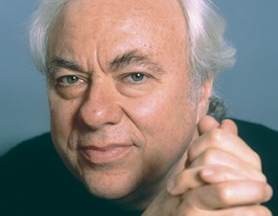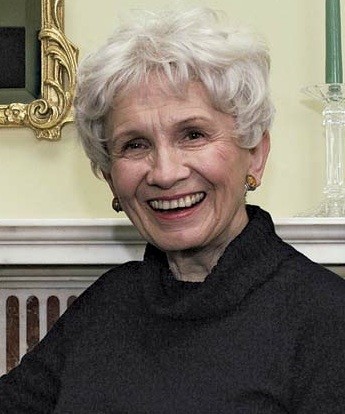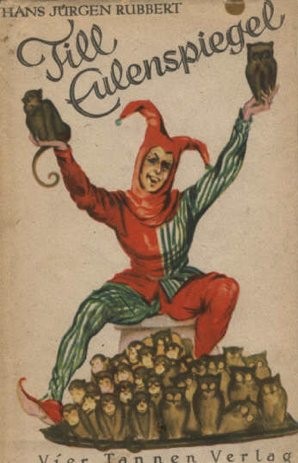The Met Orchestra at Carnegie Hall
Fabio Luisi Conducts a Harbison World Premier
By: Susan Hall - Oct 17, 2011
Fabio Luisi, Principal Conductor
The Metropolitan Orchestra
Carnegie Hall
Richard Goode, Piano
Christine Rice, Mezzo-Soprano
Mozart, Overture to the Magic Flute
Mozart, Piano Concerto No. 25 in C Major, K. 503
John Harbison/Alice Munro Closer to My Own Life (World Premiere)
R. Strauss Till Eulenspiegels lustige Streiche
October 16, 2011
Fabio Luisi led the Metropolitan Opera Orchestra now his alone to direct. Over the years we have heard his commanding and somber performances of Wagner, Berg and Janacek. The charms of this concert recalled a delicious Hansel and Gretel. Luisi’s take in a performance of Don Giovanni, which premiered recently at the Metropolitan Opera, included harpsichord riffs by the conductor.
At Carnegie Hall Luisi turned over the keyboard instrument to Richard Goode. But before Goode took to the stage, Luisi conducted an enchanting performance of the Overture to Mozart’s Magic Flute. The theme of the afternoon was magic and fantasy. Luisi led with his customary clarity, revealing the ear-popping tunes and off-centered rhythms with delight.
Goode was soloist in Mozart’s Piano Concerto No. 25. Goode is known for an emotional depth and powerful expressiveness. Today’s performance exceeded even his consistent brilliance. Performing with the orchestra, the piano was an instrument among instruments. As the piano sang, so did the orchestra. When Goode played solo, the simple loveliness of the tone, the sheer beauty of the lines dazzled. A memorable performance by the ‘monarch of piano.’
A world premier of John Harbison’s Closer To My Own Life with mezzo-soprano Christine Rice singing words by Alice Munro. The Met Orchestra commissioned the piece. (Harbison has been a composer in residence at Tanglewood.) The ambiguous world of both composer and writer seem perfectly fused in this work, which is at once strange and decisive.
Munro, a Canadian novelist, has written about mathematics in short stories, and music and math are bound. She started as a writer of small places and limited lives. Here Munro remembers a cow that died and drab wintry nights. Set in a thick orchestral texture, Harbison’s music provides the palette. Unexpected events lead to the discovery of an ominous lump. At last, picking up a seashell, the sea pounds like blood from the heart as the orchestra pounds in accompaniment. A powerful new work sung beautifully by Rice.
Rice. who specializes in both Baroque and Birtwistle contemporary, sang in her big, glamorous voice, following Harbison’s strongly profiled motifs. Like Munro, she studied math and physics, and later went on to voice. Her tone is sensuous and dark, just right for this work of dark and disturbing music and words. The mood evokes a prison where freedom is found in the Harbison sounds of the sea in a shell.
Till Eulenspiegel, Strauss’ inspired tone poem, concluded the program. The title: Merry pranks after an old rogue’s tale. Strauss had abandoned his opera on Till after his wife wrote on the score: “Horrid composing.” In switching to a tone poem, he declared the work his first composed "with uninhibited independence and untrammeled subjectivity."
Luisi and the orchestra captured the musical humor on display throughout in the tale of a scamp. Strauss called the poem very funny and high-spirited. He would write to first conductor, “Analysis impossible for me. All wit spent on notes.”
Some reviewers called Till divine decadence. Divine it is. Anton Brucker thought is uncommonly interesting. No one expresses what we heard better than Debussy: “It might be called an hour of new music played by lunatics. The clarinets form frenzied designs, the trumpets are continuously muted and the horns, awaiting a sneeze from the trumpets retort God Bless you while the big drum goes boom! Boom! Apparently in imitation of a kick in the pants from a clown…There is no denying that there is genius in this work…a wild sense of movement that sweeps us along from beginning to end, compelling us to share in each of the hero’s merry pranks.”
In 1944 Strauss made an autograph copy of the score of Till for his grandchildren, in celebration of Till’s 50th birthday. He added ornamentation (not performed today) in the street ditty pages, and noted, “The curlicues are a witty improvisation by the clarinets..." The folk story and the composer’s own personality are displayed in equal measure. Even threatened with death, Till soars and the orchestra with him. No simple-minded solutions like hanging here.
Such a treat to hear this glorious orchestra under its new leader in the magnificent sound cathedral that is Carnegie Hall.






